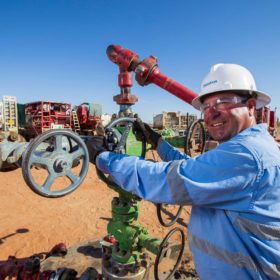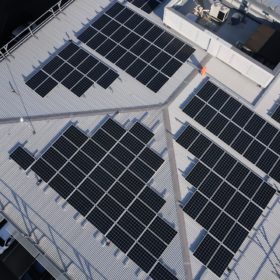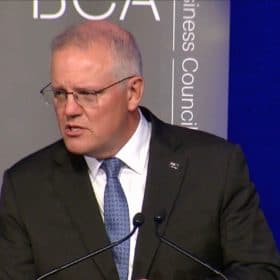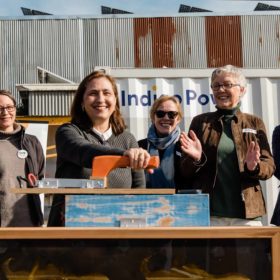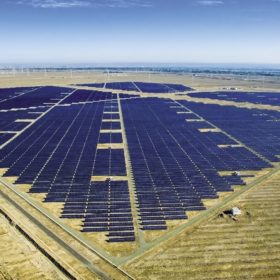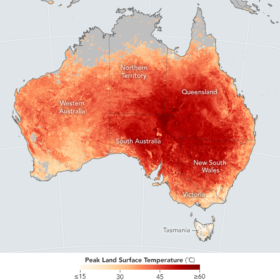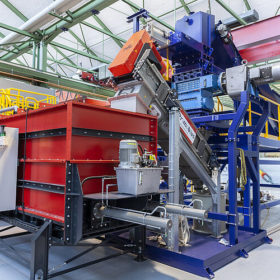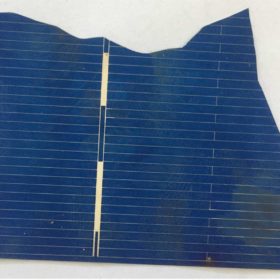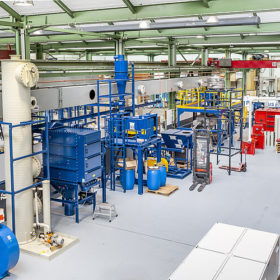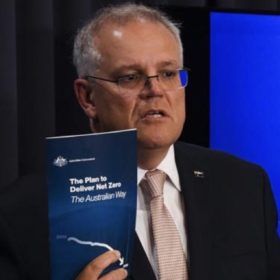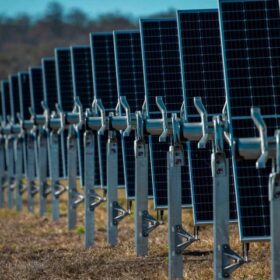CCS link takes shine off $500 million plan to boost CEFC funding
Federal government plans to expand the mandate of the Clean Energy Finance Corporation so it can invest in carbon capture and storage technology have been criticised as “yet another attempt to prop up Australia’s thermal coal industry, at the expense of renewables”.
Melbourne could meet 74% of its electricity needs with solar
Buildings in the City of Melbourne could provide 74% of their own electricity needs if solar technology is fully integrated into roofs, walls and windows, new research from the ARC Centre of Excellence in Exciton Science has found.
Morrison’s EV strategy disappoints, devoid of either fuel efficiency standards or incentives
The Morrison government today released its long-awaited electric vehicle strategy which contains neither fuel efficiency standards nor financial support for Australians buying cleaner vehicles. The strategy’s main centrepiece is an additional $178 million for its Future Fuels Fund. Rather tellingly, the strategy has been summed up “better than nothing”.
Communities step up when the Coalition won’t
Embarrassing Australia on the world stage is one of Prime Minister Scott Morrison’s favourite marketing ploys. But while the federal government continues to fail its constituents, particularly those in rural communities, those rural communities themselves are taking the energy transition into their own hands, along with the ownership of their own solar generation.
Sunday read: What to expect from China’s green power trading
On September 7, the country that consumes more power than any other nation introduced green energy trading. Two regions in China, Beijing and Guangzhou, were selected for the initial introduction of what will become the national green power trading market. Although it is still a pilot program, the market is expected to have far-reaching impacts on China’s energy transition away from coal. What do you need to know about it? Vincent Shaw in Shangahi sets out the details.
UNSW Exclusive: Heated climate scenarios will adversely affect Australia’s PV generation capacity
Yes, Australia is blessed with an incredible solar resource, but it will be diminished and returns localised by global warming.
WA company finds foothold in Germany in transformation to ‘preeminent’ global battery recycler
In the coming weeks, Western Australian mining-cum-materials recovery company Neometals will begin testing at its newly commissioned battery recycling demonstration plant in Hichenbach, Germany, the product of a joint venture with SMS Group. The Primobius facility, as it’s named, has already garnered considerable attention and is a finalist in 2022’s prestigious German Sustainability Award. “We want Primobius to be the preeminent recycler in the world,” the company’s managing director, Chris Reed, told pv magazine Australia.
New tech to recover pure silicon from end-of-life solar cells
An Indian research group has used three different chemicals instead of commonly used hydrofluoric acid to separate silicon from the cell. The technique is claimed to be able to deliver recycled silicon with a purity of up to 99.9984%.
Innovative Australian battery materials projects gain momentum at home and abroad
A number of Australian battery material recovery projects got off the ground this week, including the completion of Western Australian outfit Neometal’s battery recycling demonstration plant, a Queensland-Japanese joint venture studying the extraction of cobalt from copper tailings as well as the funding of Sydney-based startup Novalith.
Hilarious, scathing responses to Morrison’s ‘bullsh*t’ plan
Australians are overjoyed at the Morrison government’s strong, detailed plan to get the nation to net zero by 2050… nah, just kidding. In the last 24 hours, the internet has erupted with criticism, scolding everything from the plan’s font, to its copyright date, and mind bogglingly vacancy. Here are some of the best reactions so far…
